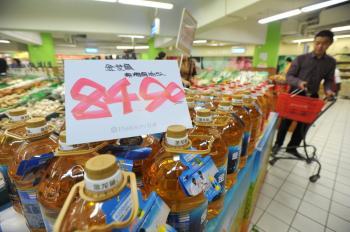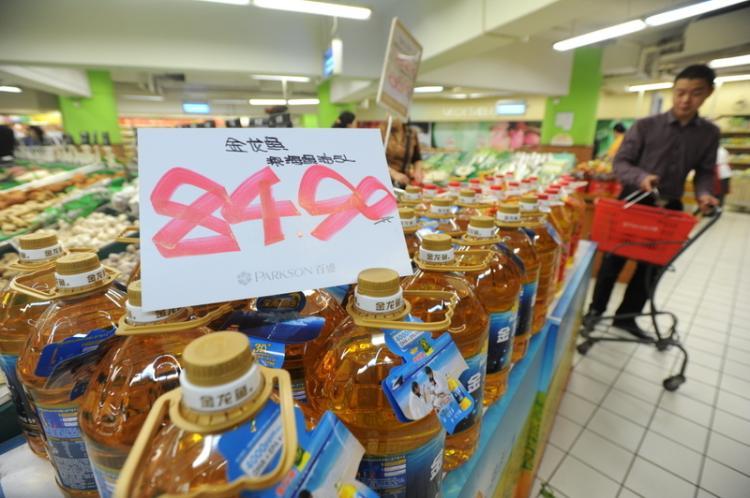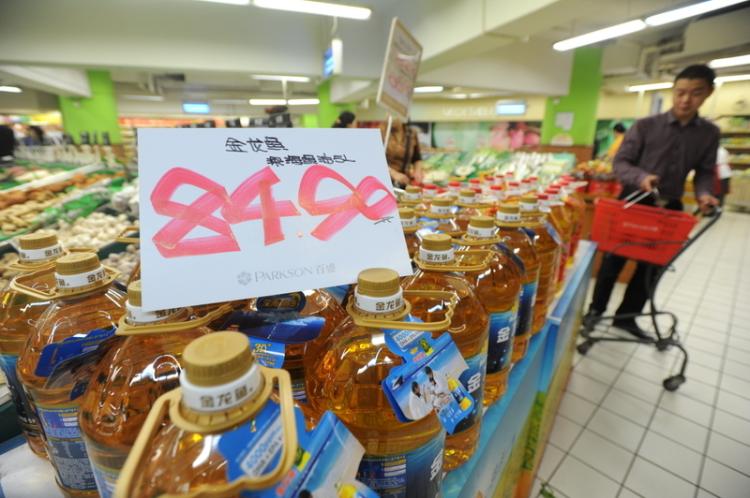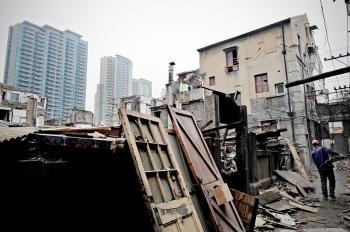Chinese Try to Cope with Soaring Prices
Bank loans and an over-issue of currency have increased inflation and consumer prices.

The price for cooking oil in a Chongqing supermarket has gone up to over 80 yuan (about US$12) per bottle as of Oct. 20. The Epoch Times
|Updated:




